Every now and again people come up and say why trans people should have “extra rights”. And of course, we should not – and nor do we ask for them. The slogan often used by trans activists is “Trans Rights Are Human Rights”, and that is what we seek – human rights.
We are referring of course to the “Gender Recognition Act” of 2004 – which treats us as “mentally ill” and gives us no legal recourse to appeal when applying for a Gender Recognition Certificate.
The right to appeal is a fundamental human right, and since 2019 the World Health Organisation and indeed the NHS no longer consider trans people as mentally ill.
So what do I object to regarding the current format of the Gender Recognition Act?
Some Member States have imposed a timeframe on individuals in accessing LGR. Time requirements are implemented at different stages of the procedure. In some cases, applicants must prove that they have been living publicly in accordance with their gender identity for a certain period of time141. The so-called ‘real-life experience’ (RLE) requires a person to live for a certain period of time in line with their gender identity without official documents to support that identity. This can be a particularly burdensome experience for transgender individuals, who must live in their gender without legal recognition, ‘prove’ that they effectively identify with this, as well as for persons with a non-binary gender identity, who must ‘act’ a gender identity that is not theirs in order to fit the assessment of a binary ‘real-life experience.’
Notes about the UK (page 112 say this):
In the UK, applicants must have, or have had, a documented diagnosis of ‘gender dysphoria’ by a doctor or psychologist from the Gender Recognition Panel’s list of experts. In addition, applicants must undergo, have been prescribed or are undergoing treatment for the purpose of modifying sexual characteristics. There is no requirement for surgery or hormonal treatment per se; however, there must be medical treatment involved. Either some type of surgery modifying sexual characteristics or hormone treatment must be undergone.
Other criteria required to achieve getting a Gender Recognition Certificate includes providing umpteen documents showing a change of name including bank details and a driving licence. I have even heard of applicants sending in images of them attending public events dressed in their new gender.
The bottom line is this is all so unfair – and the EU says as much in their report rating the UK as one of the most challenging countries in Europe to change gender.
I have blogged previously how I would like things to change. This does not include “Self-id” which I certainly dont object to in principle- but just feel we have so many more battles to fight for that are much more important. We also have to respect that some women object to Self-id and we can not expect “acceptance” if they see us as a threat.
But I do feel if a trans person has had “bottom surgery” they should immediately be eligible for a Gender Recognition Certificate. And that if a person has been on hormones for a set time (for example two years) that – in its own right – should be enough to prove commitment.
One final note. The Gender Critical invariably try and tie in the Gender Recognition Act to “Women’s Places”. These are covered under the Equality Act of 2010. The Government has previously said they do not intend to change this. I agree. The Equality Act (EA) works for everyone – and single-sex spaces must be maintained.
In general, the EA isn’t broke, and dont need fixing.




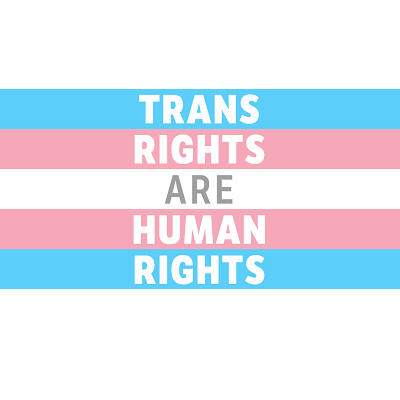
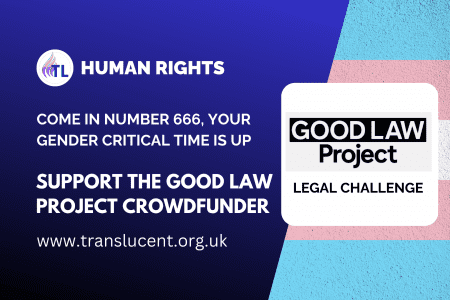
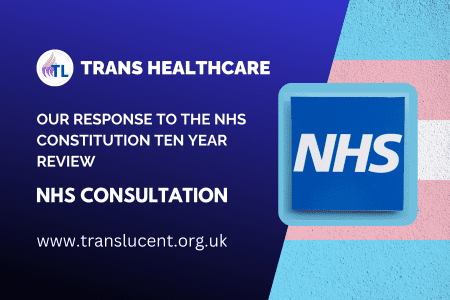
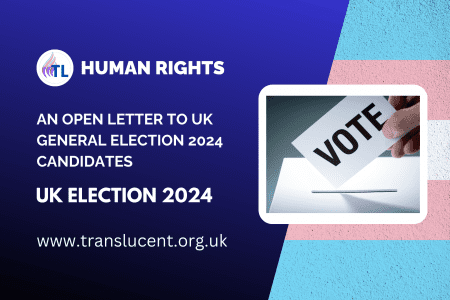
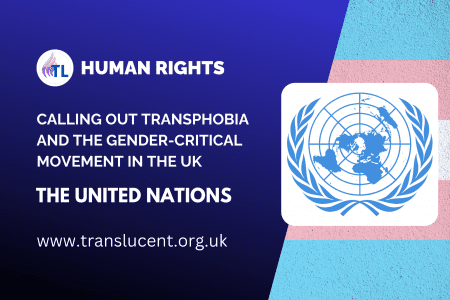
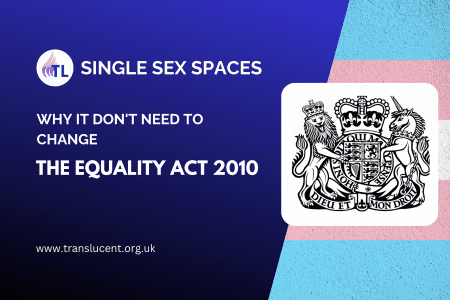

 To provide the best experiences, we use technologies like cookies to store and/or access device information. Consenting to these technologies will allow us to process data such as browsing behaviour or unique IDs on this site. Not consenting or withdrawing consent, may adversely affect certain features and functions.
To provide the best experiences, we use technologies like cookies to store and/or access device information. Consenting to these technologies will allow us to process data such as browsing behaviour or unique IDs on this site. Not consenting or withdrawing consent, may adversely affect certain features and functions.